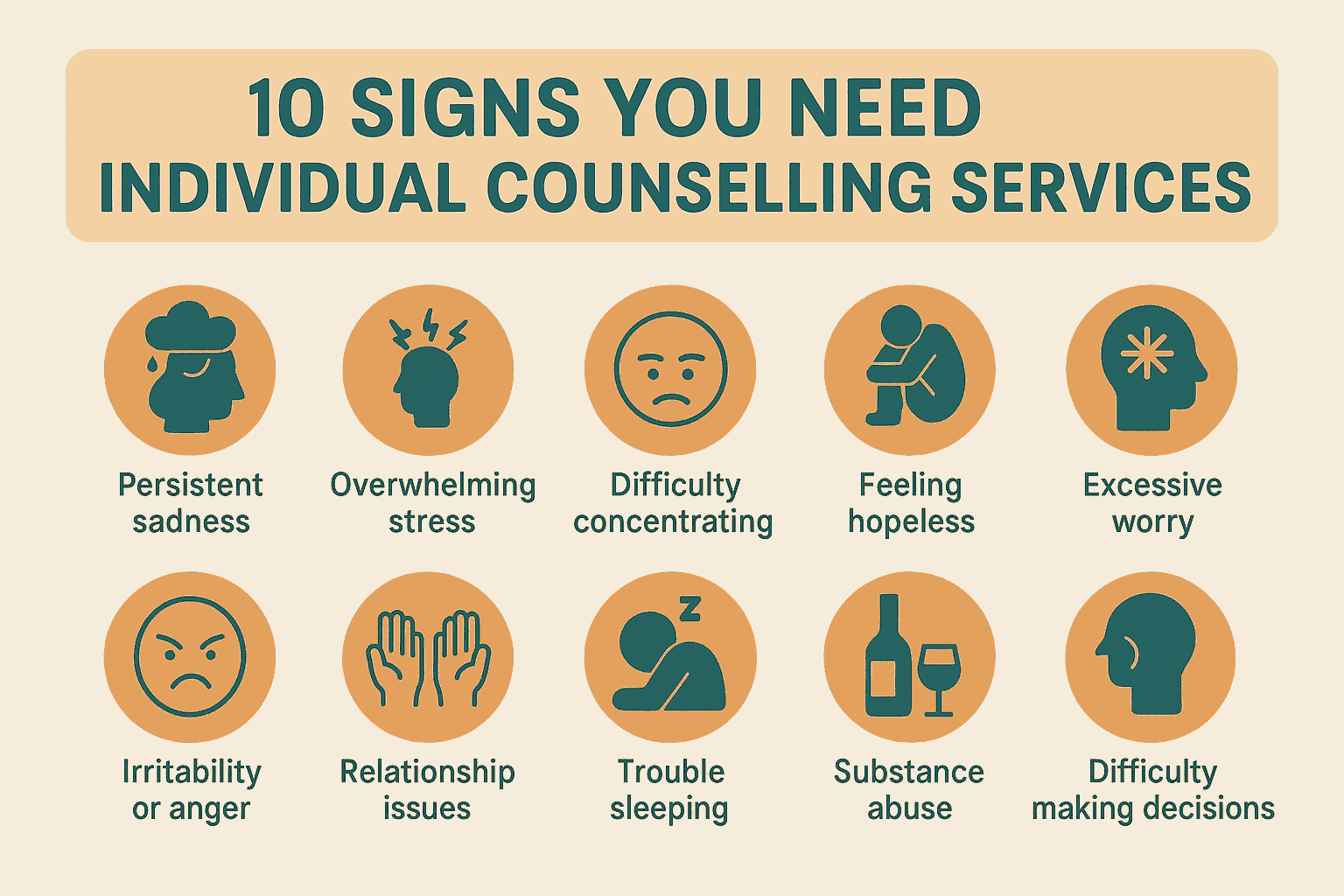When parents choose Individual Therapy Toronto for their struggling teens
Wiki Article
Recognizing the Significance of Mental Treatment for Adolescent Growth and Health And Wellness
Psychological therapy plays a vital role in the advancement and health of teens. It attends to a range of psychological health problems that can hinder their development. Via treatment, teens can learn essential coping methods and boost their emotional knowledge. This process cultivates strength, allowing them to better navigate life's difficulties. Nevertheless, several still be reluctant to involve in conversations regarding psychological health and wellness. Checking out the factors behind this unwillingness discloses deeper understandings into the teenage experience.The Effect of Adolescent Mental Health And Wellness on Overall Growth
The interaction between adolescent mental health and general advancement is multifaceted and extensive. During the important phase of adolescence, individuals undergo substantial physical, emotional, and social changes that shape their identification and future. Psychological wellness plays a crucial function in this process, influencing scholastic performance, connections, and self-worth. Favorable psychological health cultivates resilience and flexibility, enabling teens to navigate challenges successfully. On the other hand, psychological health issues can hinder cognitive features, interfere with social interactions, and prevent emotional law, leading to a waterfall of developmental setbacks.The setting in which teenagers expand-- including household characteristics, peer impacts, and social expectations-- engages with their psychological wellness, further complicating their developing trajectory. Recognizing the relevance of psychological health in this stage is necessary for promoting healthy and balanced development and ensuring that teenagers can flourish, both during their formative years and past. Focusing on psychological health and wellness assistance can significantly improve their overall development and future potential.
Common Mental Health Issues Faced by Teenagers
While maneuvering through the complexities of teenage years, numerous young adults experience an array of mental health issues that can significantly influence their lives. Anxiety problems are prevalent, typically defined by too much worry or anxiety that hinders everyday activities. Clinical depression is another typical concern, manifesting as relentless sadness, loss of interest, and difficulty in functioning. In addition, behavioral issues, such as opposite bold disorder, can result in disputes with authority figures and a battle to follow social standards. Consuming disorders, consisting of anorexia nervosa and bulimia, may occur as teenagers face body photo and social pressures. Finally, chemical abuse can create as a misguided effort to handle psychological distress. These psychological wellness difficulties, if unaddressed, can prevent scholastic efficiency and social partnerships, underscoring the need for understanding and support within this vulnerable age team.
The Duty of Therapy in Structure Coping Methods
Treatment plays a significant function in outfitting teens with efficient coping techniques to navigate their psychological health and wellness obstacles. Via organized sessions, therapists aid teens identify and comprehend their feelings, promoting self-awareness. By making use of various methods such as cognitive-behavioral treatment, teenagers discover to challenge adverse thought patterns and change them with useful ones. This procedure enables them to create much healthier responses to stress factors.Furthermore, treatment supplies a safe setting for teens to exercise these techniques, promoting the shift from concept to real-life application. Role-playing and situation evaluation enable them find to rehearse coping devices in a supportive area. As teenagers encounter distinct pressures-- academic needs, social characteristics, and identification expedition-- having actually personalized dealing techniques comes to be necessary. Inevitably, treatment not just addresses prompt problems yet also infuses lifelong abilities that allow adolescents to manage future difficulties, promoting total mental wellness and durability in their advancement.
Cultivating Strength and Psychological Knowledge With Therapy
Just how can therapy nurture resilience and emotional knowledge in teens? Treatment offers a risk-free setting where teens can discover their ideas, habits, and emotions. Via guided discussions and tasks, specialists help teenagers determine and recognize their feelings, fostering psychological awareness. This recognition is a foundation of emotional knowledge, allowing them to understand with others and manage interpersonal relationships properly.Additionally, therapy equips young adults with tools to browse life's challenges, promoting strength. By attending to past traumas, disappointments, and stressors, they learn to develop coping devices that empower them to encounter adversity. Therapists frequently encourage goal-setting, which instills a sense of purpose and achievement.
As young adults exercise these skills in therapy, they come to be extra adept at dealing with unpredictabilities and troubles (Individual Counselling Services). Inevitably, this nurturing of resilience and emotional knowledge prepares them for the intricacies of adult life, enhancing their general psychological wellness and well-being

Motivating Open Discussion Concerning Mental Wellness in Teenagers
What techniques can successfully promote open discussion regarding mental health amongst teens? Producing a risk-free and supportive atmosphere is essential. Parents and instructors should encourage conversations by normalizing conversations regarding psychological health and wellness, highlighting that it is a substantial facet of general health. Active listening plays a crucial duty; adults have to be non-judgmental and conscientious when teenagers share their feelings or issues.Integrating mental wellness education and learning into school curriculums can likewise help with open discussion. Workshops, peer support system, and mental wellness understanding campaigns can equip young adults to share themselves much more freely. Additionally, utilizing social media sites systems can be useful, as they are frequently where teenagers really feel most comfortable communicating. By cultivating an atmosphere of depend on and openness, grownups can help young adults understand that going over psychological health is not just appropriate but necessary for their growth and psychological wellness.
Often Asked Concerns
Just How Can Parents Acknowledge Indications of Mental Health And Wellness Issues in Teenagers?
Parents can acknowledge signs of psychological health and wellness concerns in teenagers by observing changes in behavior, state of mind swings, withdrawal from activities, decreasing scholastic efficiency, modifications in sleep or appetite, and sharing feelings of hopelessness or stress and anxiety.More Info
What Sorts of Treatment Are Many Effective for Teens?
Cognitive Behavior Treatment (CBT), Dialectical Behavior Modification (DBT), and group therapy are among the most effective types for teenagers. Individual Therapy For Teens. These methods foster dealing abilities, psychological policy, and provide peer support, essential for adolescent psychological health and wellnessExactly How Can Treatment Assistance Academic Performance in Teenagers?

What Should Teens Expect Throughout Their First Therapy Session?
During their very first treatment session, teens can anticipate an inviting atmosphere, an introduction to the specialist, conversations about their problems, and developing goals (Individual Teen Counselling). Privacy and the restorative procedure will likewise be explained to promote comfort and depend onExactly How Can Teens Locate a Specialist That Matches Their Demands?
Teens can find an ideal specialist by looking for suggestions from trusted adults, looking into on-line directory sites, thinking about specialties, and scheduling initial assessments to examine compatibility and interaction designs, eventually making sure a supportive therapeutic relationship.
Report this wiki page